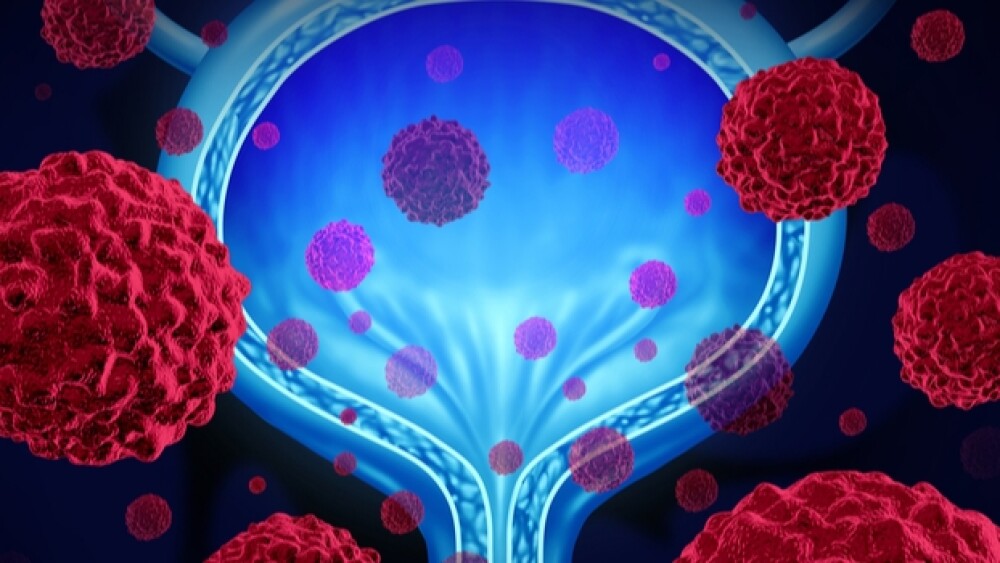The company said its combination treatment of Imfinzi (durvalumab) plus tremelimumab, an anti-CTLA4 antibody and Imfinzi on its own, did not improve overall survival in patients with this advanced form of bladder cancer.
AstraZeneca’s treatment options for Stage IV (metastatic) bladder cancer failed to hit the mark of improving overall survival in a Phase III trial, the company announced.
This morning, the company said its combination treatment of Imfinzi (durvalumab) plus tremelimumab, an anti-CTLA4 antibody and Imfinzi on its own, did not improve overall survival in patients with this advanced form of bladder cancer. Imfinzi has been approved for patients with locally advanced or metastatic bladder cancer previously treated with platinum-containing chemotherapy. Full data from the trial will be presented at a future medical conference, the company said. The safety and tolerability profiles for Imfinzi and tremelimumab remained consistent with previous studies.
AstraZeneca was assessing Imfinzi as a monotherapy against standard-of-care treatment for bladder cancer patients whose tumor cells and/ or tumor-infiltrating immune cells expressed high levels of PD-L1. The combination of Imfinzi and tremelimumab was being tested in patients regardless of their PD-L1 expression. Imfinzi is a human monoclonal antibody that binds to PD-L1 and blocks the interaction of PD-L1 with PD-1 and CD80. Tremelimumab blocks the activity of CTLA-4, contributing to T cell activation and boosting the immune response to cancer.
José Baselga, AstraZeneca’s head of oncology research and development said the trial failure will help the company make decisions regarding its our comprehensive Phase III development program in bladder cancer. Baselga said the company remains committed to addressing unmet needs in bladder cancer and sees the potential for immunotherapies to improve the outcomes for patients. The Phase III DANUBE trial addresses a post-approval commitment in agreement with the US Food and Drug Administration from the May 2017 accelerated U.S. approval of Imfinzi in previously treated patients with advanced bladder cancer.
In 2018, approximately 550,000 people around the world were diagnosed with bladder cancer, with urothelial cancer being the most common form. PD-L1 is widely expressed in tumor and immune cells in patients with bladder cancer and helps tumors evade detection from the immune system. There were about 200,000 deaths from bladder cancer in 2018, AstraZeneca said. Locally advanced and metastatic bladder cancer remains an area of unmet medical need and typically only one in seven patients are alive five years after diagnosis.
Baselga said the company is now focused on the Phase III NILE trial, which is also in the first-line metastatic setting and added that AstraZeneca is advancing clinical trials for patients in earlier stages of bladder cancer. The Phase III NILE trial is aiming Imfinzi in combination with chemotherapy and tremelimumab at patients with unresectable, locally advanced or metastatic bladder cancer. Imfinzi is also being tested in earlier stages of bladder cancer in the Phase III NIAGARA trial in combination with chemotherapy, and in the Phase III POTOMAC trial in combination with standard-of-care Bacillus Calmette-Guerin immunotherapy, the company said.
This is not the first disappointment AstraZeneca has seen in late-stage cancer trials with the combination of Imfinzi and tremelimumab. Last year, the combination of Imfinzi and tremelimumab did not meet the primary endpoint of improving overall survival compared to standard-of-care chemotherapy in previously-untreated Stage IV non-small cell lung cancer.
The combination of Imfinzi and tremelimumab are also being assessed as a treatment for patients with NSCLC, SCLC, bladder cancer, head and neck cancer, liver cancer, biliary tract cancer, cervical cancer and other solid tumors. In October, the combination posted a win with positive progression-free survival results for Imfinzi and tremelimumab from the Phase III POSEIDON trial in previously-untreated Stage IV (metastatic) non-small cell lung cancer. In January, the combination earned Orphan Drug designation from the U.S. Food and Drug Administration as a possible treatment for hepatocellular carcinoma.





